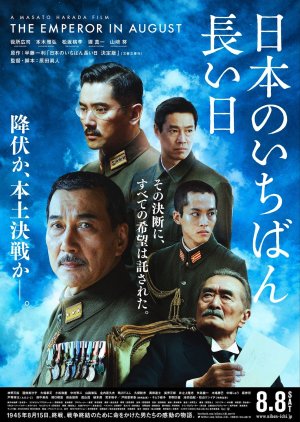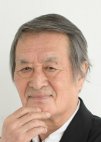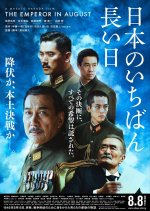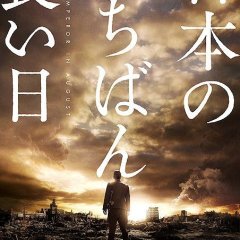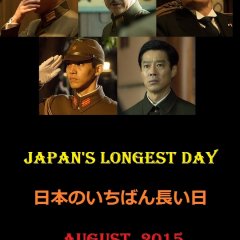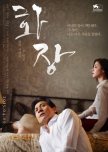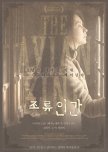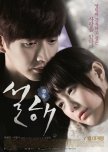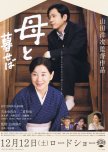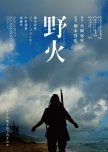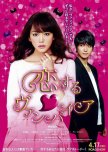 A Stalker's Guide to Matsuzaka Tori
A Stalker's Guide to Matsuzaka Tori - Français
- English
- magyar / magyar nyelv
- dansk
- Titre original: 日本のいちばん長い日
- Aussi connu sous le nom de: Japan's Longest Day , Nihon no Ichiban Nagai hi
- Scénariste et Réalisateur: Harada Masato
- Genres: Historique, Drame, Guerre
Distribution et équipes
- Yakusho Koji Rôle principal
- Motoki Masahiro Rôle principal
- Matsuzaka Tori Rôle principal
- Tsutsumi ShinichiSakomizu Hisatsune [Chief Cabinet Secretary]Rôle principal
- Yamazaki TsutomuBaron Suzuki Kantaro [Prime Minister]Rôle principal
- Kanno MisuzuAnami Ayako [Wife of General Anami]Rôle Secondaire
Critiques

This is not a typical war movie filled with battle scene actions or tactical and strategical insights, but it gives you thrilling feeling no less than those movies. To compare it, this movie is a war drama like "Darkest Hour" - incidentally, both countries were in the national emergency (though timing were different), bringing the firefighters to form new cabinet and overcome the situation.
Regarding the story, in the interview with Japan Times, the director stated that he did as much as he can to stay true to the original book than the previous one, and this is believable. Possibly the main difference between the previous adaptation and this remake is the role of the Emperor. Note that Emperor Showa was still reigning in 1967 (so were several personnel involved in Suzuki cabinet and Kyujo incident), and hence to avoid controversies, the Emperor character was given less screen time, even crediting as special appearance. It is a story from Japanese perspective (but I grantee it is not biased), after-all it is all about internal struggles and situations inside wartime Japanese government.
The names like Yakusho Koji, Tsutsumi Shinichi, Motoki Masahiro and Yamazaki Tsutomu (Departures cast), always deliver the best of them. Matsuzaka Tori is also perfect fit as a young, aggressive officer with war-time (propaganda-influenced) mentality. Rivalry between Army and Navy, factionalism inside army, mindset and thinking of military personnel, intensity and tumultuous situation of the period are superbly portrayed by all the characters. The more you delve into history, the more you appreciate the acting and storytelling of this movie.
The movie may not fit for an average viewer (especially for those who do not know or have no interest in WW2 and Japanese history, or at least background situations), but this is a true gem for history geeks.
Cet avis était-il utile?

Emperor in August
very good historical account of the attempted coup against Japan's acceptance of terms of allied powers to end Pacific War and Showa emperor's central role in achieving it〜 the production values are good although the lighting is rather dark、 whether intended is not clear but even so maybe adds to claustrophobic atmosphere of tension as ministers argue and small group of conspirators drawn from military elite try to gather support for their ill-starred enterprise: the swan song of militarism that dominated Japanese politics and society through 1930s to 1940s〜10/10 as interesting history and likely I will watch againCet avis était-il utile?
Recommandations
There have been no recommendations submitted. Be the first and add one.

